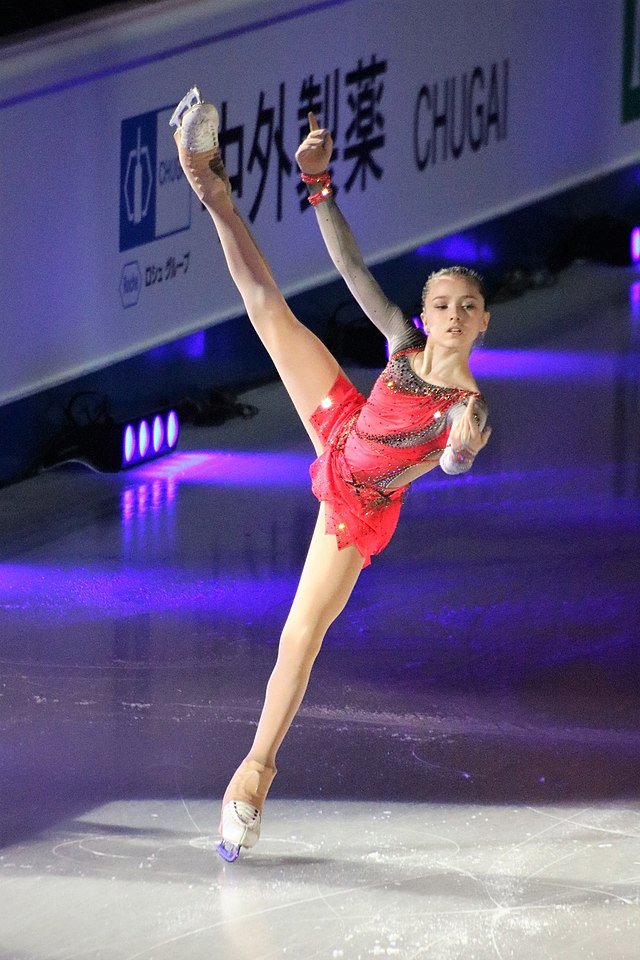The Valieva Case Recap
The Timeline
Beijing. February 8, 2022. Shortly after a triumphant win in the Team Event, Russian Olympic Committee’s gold was put into question. It became known that a forbidden substance was found in a sample of ‘a minor in ROC’s figure skating team’. The doping scandal was quick to emerge since Valieva, 15 at the time, was ROC’s only underage skater.
February 9-10, 2022. The next day, Valieva was provisionally suspended by the Russian Anti-Doping Agency (RUSADA). Kamila and her coaching team challenged the suspension, which was lifted, and the skater resumed training on the Olympic ice. Essentially, the 15-year-old athlete tested positive on December 25, 2021, for trimetazidine, a drug typically prescribed to much older patients suffering from angina and other heart-related conditions. However, it is still unknown why a Swedish laboratory, that analyzed Valieva’s sample, did not report the results until February 8, 2022. In those two months, Kamila had established herself as the prime candidate for the Olympic gold by conquering Russian National and European titles.
February 11, 2022. Three critical organizations — the IOC, WADA, and ISU — requested the Court of Arbitration for Sport (CAS) to reinstate Valieva’s provisional suspension. If Valieva were to be suspended before the Ladies’ Individual Event on February 15, 2022, she would lose the opportunity to compete at all. Given the vague circumstances and the amount of media pressure on both the athlete and the organizations, a hearing was quickly announced.
February 14, 2022. CAS ruled that Kamila Valieva would be allowed to compete in the individual event with an ongoing investigation. Firstly, The Court declared 15-year-old Valieva a ‘Protected Person’. Therefore, different rules must apply to her case. Besides, the athlete was given the green light to skate as she did not test positive during the Olympic Games. CAS also stated that preventing Valieva from competing would cause her ‘irreparable harm’.
Foreseeing the possibility of Kamila’s disqualification, the ISU expanded the field for the free skate from 24 to 25 people. The IOC decided that if Valieva placed among the top three, no flowers or medals would be rewarded until the final verdict.
February 17, 2022. Despite placing 1st in the short program, Kamila Valieva made several costly mistakes during her free skate and ended up 4th. The athlete was visibly nervous and broke down in tears after the performance. Valieva would later explain that her jumps were ‘unusually heavy’ as she ‘felt an immense weight on her shoulders’.
After the Olympics, WADA requested RUSADA to deliver a verdict on Valieva’s case no later than November 4, 2022.
November 14, 2022. After RUSADA had failed to reach a consensus on time, WADA requested CAS to investigate Valieva’s case further and impose a four-year suspension. That way, Kamila’s team gold would be revoked, and she would be banned from the 2026 Olympic Winter Games.
January 13, 2023. RUSADA’s Disciplinary Committee declared Valieva innocent but annulled her Russian Nationals’ win as of December 25, 2021.
February 21, 2023. WADA appealed RUSADA’s decision and requested to strip Valieva of European and Olympic Team titles upon a four-year ban.
February 24, 2023. RUSADA appealed its verdict in CAS. From now on, they insist that Valieva be found guilty of anti-doping rule violations.
June 22, 2023. CAS announced a new hearing on Valieva’s case would take place on September 26-29, 2023.
September 15, 2023. Kamila Valieva pleaded ‘not guilty’ and requested CAS to reinstate her Russian National title.
September 28, 2023. Valieva’s case hearing was postponed until November 9-10, 2023.
The ‘Irreparable Harm’
Kamila Valieva performs her gala exhibition at the Junior Grand Prix Final (2019).
Source: Luu. Accessed via Wikimedia Commons / CC BY-SA 4.0.
As the figure skating world impatiently waits for the outcome, it is predominant to highlight one thing. Being one of the most promising skaters with enormous flexibility, lines, and well-executed spins, the future on an international stage does not look bright for Valieva. Since Russia invaded Ukraine, the ban on Russia’s athletes is unlikely to be lifted in the upcoming years. The same goes for Kamila, no matter how ‘talented’ she is. Now, Valieva faces a long-term ban from competing. But I highly doubt it will affect Kamila’s participation in national competitions, big and small. Valieva’s most significant senior titles are also subject to change: we don’t know whether The Court will allow her to keep them. In the most pessimistic case, the skater will be found guilty and left without European and Olympic gold. While some might consider this kind of punishment too harsh, others will speculate on what really is ‘irreparable harm’ and to whom it may be applied.
Kamila’s tragic Olympic free skate caused ‘irreparable harm’ to her emotional state. Allowing Kamila to compete, caught in a whirlwind of a doping scandal with an open investigation, caused ‘irreparable harm’ to clean athletes. Should Valieva’s sample be reported on time, she wouldn’t have felt immense pressure, and the entire story could have been prevented. Most importantly, Valieva herself is forced to handle the consequences of ‘irreparable harm’ though she cannot be solely responsible for the failed drug test. Is it possible that a 15-year-old could have taken the medication voluntarily? I don’t think so. The coaching staff, doctors, and parents, who allegedly allowed the banned substance to occur, should be held accountable, not Kamila.
Nearly two years after the incident, the saga is coming to an end. With tears shed, we should not blatantly accuse Kamila of being ‘irresponsible’ as she is the victim in the current situation. The only somewhat good thing is that WADA might investigate the adults supervising Valieva, overtly addressing the possibility of the coaches’ involvement. Regardless of the verdict, the damage, sadly, cannot be undone.


